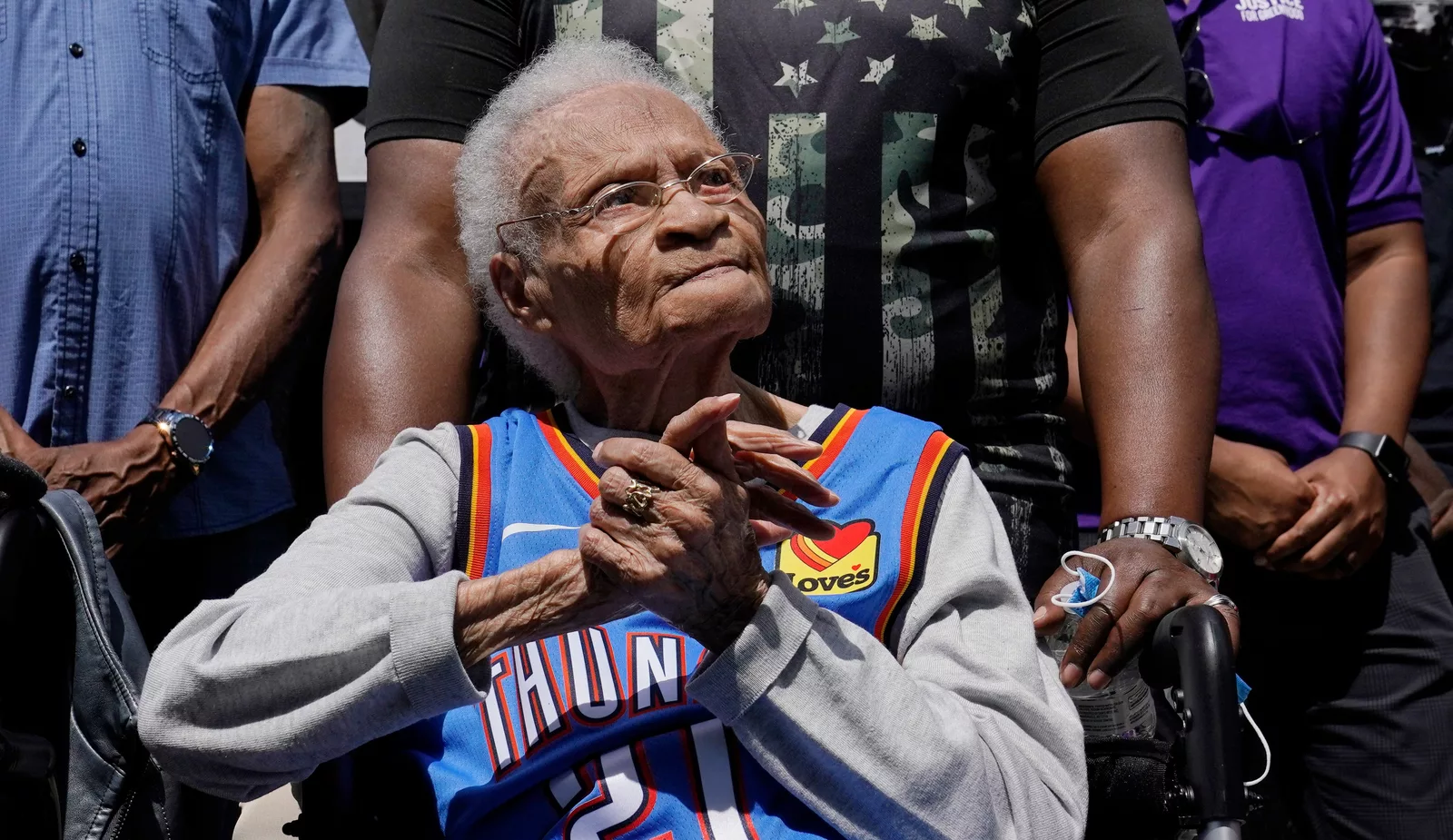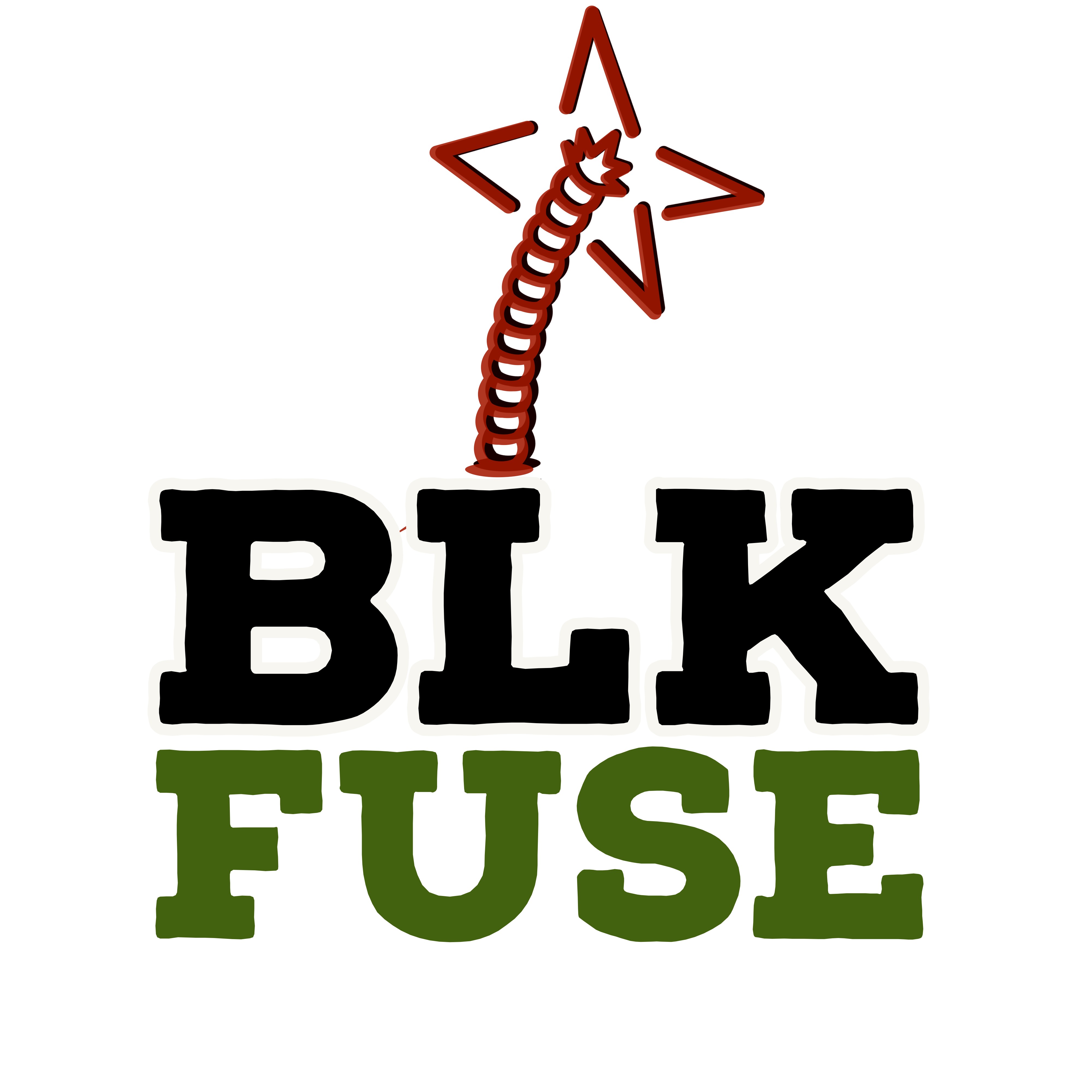



Viola Ford Fletcher was one of the last survivors of the 1921 Tulsa Race Massacre in Oklahoma. She spent her later years seeking justice for the deadly attack by a white mob on the thriving Black community where she lived as a child. Today, her family confirmed her passing at the age of 111, per the Associated Press.
Viola’s grandson, Ike Howard, said Monday (November 24) that she died surrounded by family at a Tulsa hospital. She was a woman of strong faith who raised three children, worked as a welder in a shipyard during World War II and spent decades caring for families as a housekeeper. She didn’t retire until age 85. Tulsa Mayor Monroe Nichols said the city was mourning her loss.
“Mother Fletcher endured more than anyone should, yet she spent her life lighting a path forward with purpose,” Nichols said in a statement.
Viola Ford Fletcher was 7 years old when the two-day attack began on Tulsa’s Greenwood district on May 31, 1921. The attack came after a local newspaper published a sensationalized report about a Black man accused of assaulting a white woman. As a white mob grew outside the courthouse, Black Tulsans with guns who hoped to prevent the man’s lynching began showing up. White residents responded with overwhelming force. White mobs killed hundreds of people and burned and looted homes. Over 30 city blocks in the community known as Black Wall Street ended up destroyed.
“I could never forget the charred remains of our once-thriving community, the smoke billowing in the air, and the terror-stricken faces of my neighbors,” Viola wrote in her 2023 memoir, ‘Don’t Let Them Bury My Story.’
As her family left in a horse-drawn buggy, her eyes burned from the smoke and ash, she wrote. She described seeing piles of bodies in the streets and watching as a white man shot a Black man in the head, then fired toward her family.
The 1921 Tulsa Race Massacre pretty much went unremembered for decades. In Oklahoma, bigger discussions began when the state formed a commission in 1997 to investigate the violence. Fast-forward two decades—the city has been looking for ways to help descendants of the massacre’s victims without giving direct cash payments. Some of the last living survivors, including Viola, received donations from groups but have not received any payments from the city or state.
In 2021, Viola Ford Fletcher testified before Congress about her experience during the massacre and aftermath. Her younger brother, Hughes Van Ellis, and another massacre survivor, Lessie Benningfield Randle, joined her in the lawsuit seeking reparations. In January 2024, a Justice Department review highlighted the massacre’s scope and impact. It concluded that federal prosecution may have been possible a century ago. However, there was no longer an avenue to bring a criminal case.
That same year, in June 2024, the Oklahoma Supreme Court dismissed the survivors’ lawsuit. The justices said their grievances did not fall within the scope of the state’s public nuisance statute. Van Ellis had passed away in 2023 at the age of 102.
“For as long as we remain in this lifetime, we will continue to shine a light on one of the darkest days in American history,” Viola Ford Fletcher and Randle said in a statement at the time.
Associated Press writer Jamie Stengle contributed to this report via AP Newsroom.
The post Prayers Up! Viola Ford Fletcher, One Of The Tulsa Race Massacre’s Last Survivors, Passes Away At Age 111 appeared first on The Shade Room.


